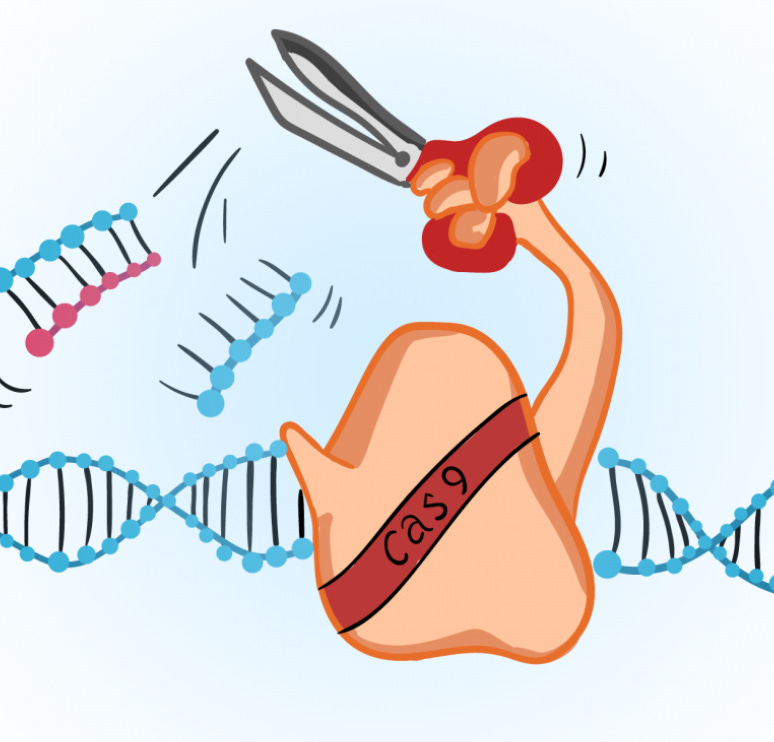The Promise of CRISPR in Treating Genetic Disorders
Written by Umme Rokshana
The medical world doesn’t just consist of fun gadgets like prosthetics or CT scanners, it’s so much more. Introducing CRISPR-Cas9, a groundbreaking gene-editing technology that has opened up new possibilities for treating genetic disorders. Discovered in 2012, CRISPR allows scientists to precisely cut literal DNA (the inside the nucleus kind) at specific locations, enabling them to remove, add, or alter genetic material. Because of this possibility, it has the potential to cure diseases that were once considered incurable.
One of the most promising applications of CRISPR is in treating inherited genetic disorders, such as cystic fibrosis (a genetic disorder that makes the body produce thick, sticky mucus that causes problems with breathing and digestion), sickle cell anemia (a blood disorder where the red blood cells become shaped like a sickle or a banana, making it hard for them to carry oxygen through the body) and Huntington's disease (a genetic condition that causes parts of the brain to break down over time, leading to problems with movement, thinking, and emotions). These conditions are caused by mutations in a single gene, making them ideal targets for CRISPR. In recent years, researchers have successfully used CRISPR to correct genetic defects in laboratory settings, offering hope for future treatments. For example, in 2020, a patient with sickle cell anemia was treated using a CRISPR-based therapy, showing significant improvement in her condition.
Beyond genetic disorders, CRISPR is also being explored for its potential in cancer treatment. By editing immune cells to better recognize and attack cancer cells, CRISPR could revolutionize cancer therapy. Early clinical trials have shown promising results, with edited immune cells effectively targeting tumors that were previously resistant to treatment.
Despite its potential, CRISPR technology is not without challenges. Off-target effects, where CRISPR edits unintended parts of the genome, remain a concern. Additionally, the ethical implications of gene editing, particularly in embryos, continue to be a topic of debate.
As research advances, CRISPR holds the promise of transforming medicine by offering new treatments for genetic disorders and cancer. With continued development and careful consideration of its ethical implications, CRISPR could revolutionize the way we approach genetic diseases in the future.
References
https://www.ashg.org/wp-content/uploads/2020/08/ASHG-Success-Stories-Crispr-9-final.pdf
Written by Umme Rokshana from MEDILOQUY


